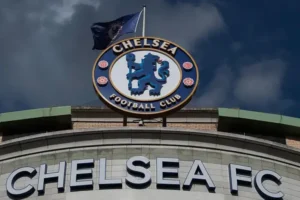President Bola Tinubu stated on Tuesday that his administration will stay resilient and has no fear of US President Donald Trump’s trade policies, notably tariffs on Nigerian goods.
Tinubu made the statements while receiving members of The Buhari Organisation, which is led by former Nasarawa State Governor Sen.
Tanko Almakura paid him a solidarity visit at the Presidential Villa in Abuja.
The president emphasized Nigeria’s present economic trajectory and rising non-oil revenues as safeguards against external shocks.
Tinubu said, “If non-oil revenue is growing, then we have no fear of whatever Trump is doing on the other side.”
He emphasized Nigeria’s strengthened fiscal situation, which had met its revenue objective for 2025 as of August, as well as the naira’s stabilization, which had risen to roughly N1,450 per dollar from N1,900 before he harmonized the exchange rates upon taking office in May 2023.
Trump’s second term has brought about significant changes in U.S. trade policy, including the introduction of a 10% baseline tariff on practically all imports, as well as country-specific tariffs.
In his Liberation Day trade policy pronouncements on April 2, 2025, Trump issued unprecedented reciprocal tariffs as part of his “America First” platform, with the goal of reducing trade deficits.
The strategy featured broad country-specific tariffs ranging from 11% to 50% above the 10% baseline.
Nigeria, like many of its Sub-Saharan partners, now faces a 15% tariff on exports, effective August 7, following an initial 14% rate established in April.
However, key commodities such as oil and gas have been spared from the new tariff regime.
Nonetheless, studies indicate that increased trade tensions and tariff impositions have already reduced global energy product shipments in early 2025, affecting demand flows for crude oil, gasoline, and diesel.
Tinubu also highlighted success on his administration’s agriculture reform goal, highlighting a huge mechanization initiative across regions.
“If we remove hunger, we have defeated poverty,” he said, arguing that food security is key to Nigeria’s economic recovery.
Meanwhile, Tinubu detailed internal disputes within the All Progressives Congress, disclosing that he disagreed with the late former President Muhammadu Buhari on the party’s emblem.
Tinubu recalled the first merger talks that resulted in the formation of the APC in 2013, stating, “We disagreed to agree… We even argued over a symbol. He (Buhari) insisted on parliament, and I insisted on a broom.”
“He’s so stubborn,” Tinubu added, laughing.
The conference on Tuesday brought together important northern party officials, including Katsina State Governor Dikko Radda and former Governor Aminu Masari, and might result in party consolidation ahead of the 2027 election cycle.
The APC was created in February 2013 by merging four opposition parties: the Action Congress of Nigeria, the Congress for Progressive Change, the All Nigeria Peoples Party, and a faction of the All Progressives Grand Alliance.
Tinubu, then-National Leader of the ACN and former Governor of Lagos State, was a key figure in the merger, while Buhari led the CPC.
Tinubu claimed that their different political cultures frequently clashed in the run-up to registration with the Independent National Electoral Commission.
According to party leaders, the broom, which eventually became the party’s logo, represented collaborative action against corruption and weak governance.
The coalition helped the APC defeat the long-ruling People’s Democratic Party in the 2015 elections, bringing Buhari to office.









